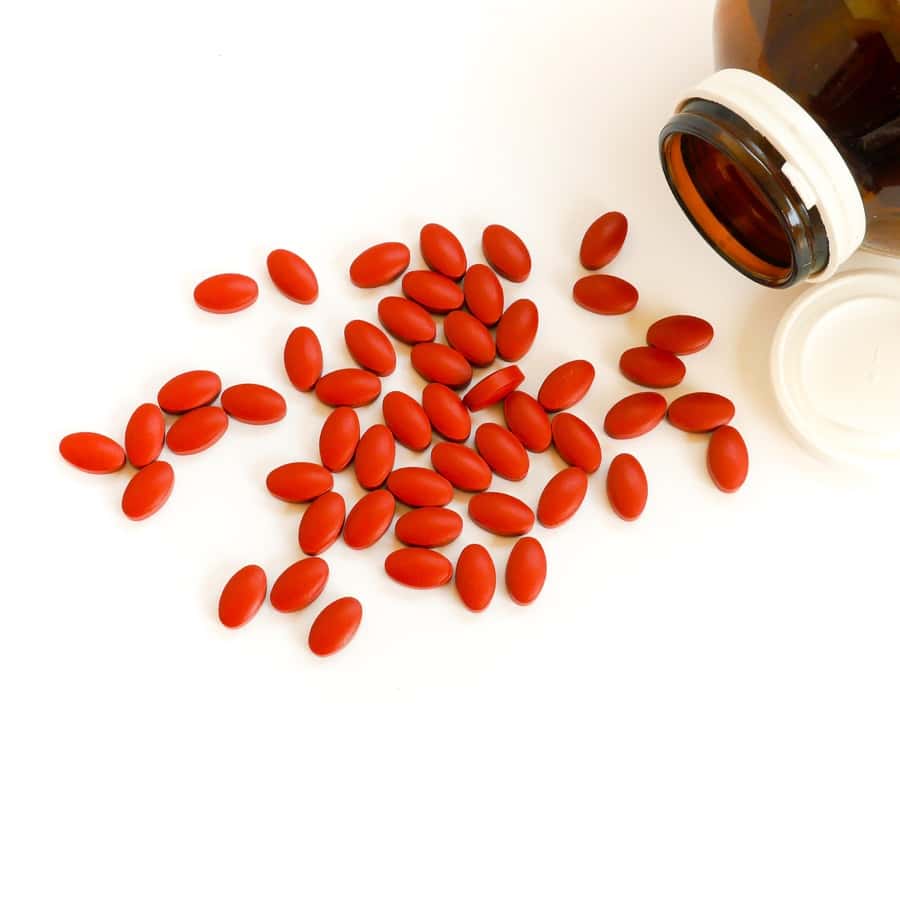
Many people need to take iron supplements because they don’t get quite enough of the mineral from their diets. Doctors may recommend supplements for people with restless leg syndrome (RLS) or extreme cravings, such as for ice. But what happens if the dose of the supplement is too high? When should you take less iron?
Trouble Breathing and Low Oxygen:
Q. I was having some difficulty breathing because of a tight chest, phlegm and coughing. When my doctor checked my blood oxygen level it was low (93).
My primary care provider wanted to refer me to a pulmonologist. However, recently I had an iron test because I’d switched the type and dosage of an iron supplement I take.
The results showed that my blood iron was elevated: ferritin was 322 ng/ml (standard range being 8-252) and the percent saturation was 57 (standard range 15-50).
My doctor told me to take just half the dose of iron I was on. The next day my chest was open again with little phlegm. My breathing was back to normal and my blood oxygen was 96 and has stayed there ever since.
I am wondering how many medical people are aware of these effects from high levels of iron in the blood. Instead of being terrified at having COPD, I simply had to take less iron.
To Reduce Inflammation, Take Less Iron:
A. Researchers now recognize that excess iron levels in the body can cause inflammatory reactions in the lungs (European Respiratory Journal, April 23, 2020). That could lead to symptoms of asthma.
Your story illustrates why the dose of over-the-counter supplements can be vitally important. If levels of this mineral get too high, people can experience damage to other organs as well, including liver, heart and brain.
Should You Try Turmeric?
In researching your reaction, we stumbled across an interesting option. Researchers report that curcumin, the active ingredient in turmeric, can partially protect against iron-induced toxicity (Current Pharmaceutical Biotechnology, Sept. 14, 2021). Curcumin does this by chelating (grabbing onto) excess mineral ions (PLoS One, Dec. 1, 2020). Of course, the best strategy is to take less iron and avoid overdosing!
Citations
- Ali MK et al, "Crucial role for lung iron level and regulation in the pathogenesis and severity of asthma." European Respiratory Journal, April 23, 2020. DOI: 10.1183/13993003.01340-2019
- Moinipour N et al, "Protective effects of curcumin against iron-induced toxicity." Current Pharmaceutical Biotechnology, Sept. 14, 2021. DOI: 10.2174/1389201022666210914122846
- Badria FA et al, "Correction: Curcumin attenuates iron accumulation and oxidative stress in the liver and spleen of chronic iron-overloaded rats." PLoS One, Dec. 1, 2020. DOI: 10.1371/journal.pone.0243398

